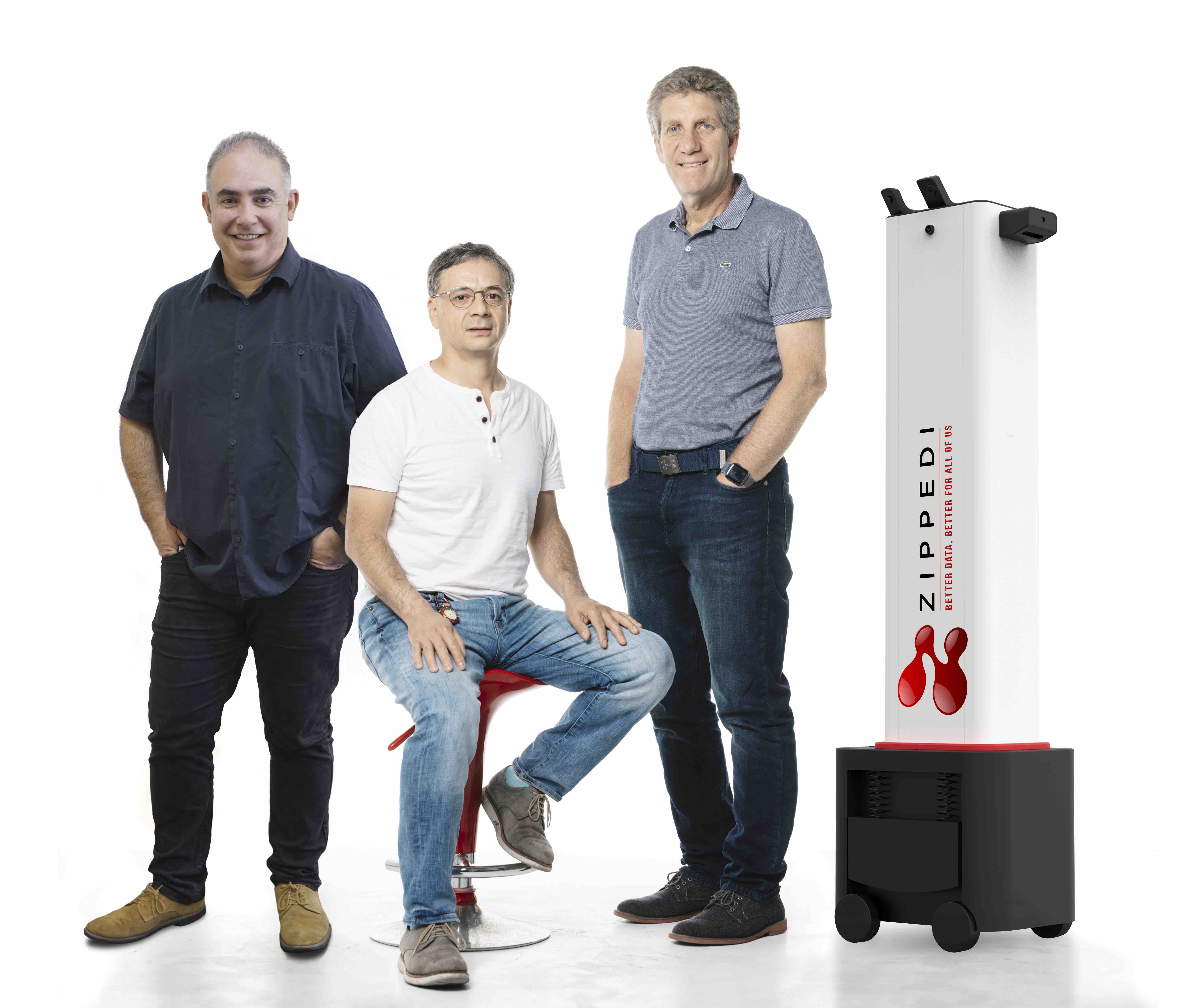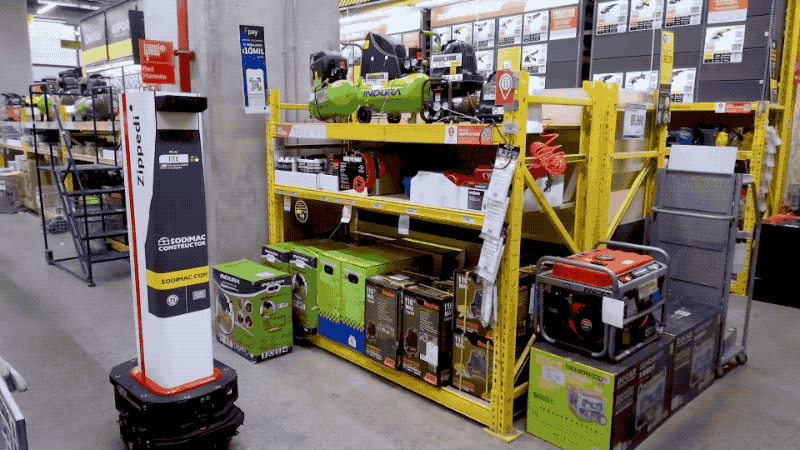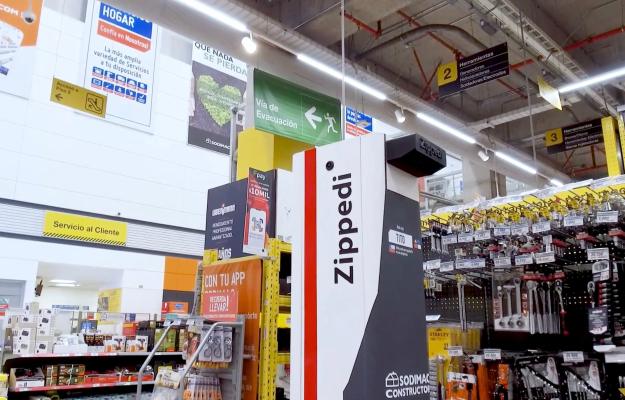Luis Vera believes the third time is the charm. The self-proclaimed serial entrepreneur admits that his vision for digitizing retail was a decade or two early when he started his journey in the 90s. Through a pair of startups — Prospect and SCOPIX — he tried a variety of methods to help capture store inventory, including placings cameras on shelves and a ceiling-based system where one ran on tracks.
He was, effectively, attempting to compete with Amazon well before Amazon was, well, Amazon — at least in any meaningful sense. Computer vision, machine learning and the like have caught up a lot since then, of course. The notion of competing directly against Amazon is a seemingly impossible order, but Zippedi’s vision utilizes the geographical benefit of brick and mortal locations to help facilitate last-mile deliveries.

Image Credits: Zippedi
The company utilizes an inventory robot to keep tabs of what’s on shelves, creating a “digital twin” online. When someone orders something for, say, DoorDash, a shopper knows not only what is on the shelf, but where to find it. The system can both offer direction to items and provide a prioritized shopping list, so they can be in and out as quickly as possible. It’s easy to see how the company could incorporate AR in the future (and that’s on the roadmap), but we’re getting ahead of ourselves a bit here.
“A good example is when Uber was coming out, if there was a company to help the taxis,” says Vera. “Brick and mortar stores are here to stay. There’s going to be a big swath of people buying in the store, so I think the best way to approach this is to digitize the store and do all of these things that will make your customers happy. Whether it’s last-mile delivery, whether it’s shopping in the store — once you have the digital twin, you can do a whole bunch of stuff. ”
Today, the Bay Area-based firm announced that it’s raised a $12.5 million Series A, led by Transpose Platform. That joins a $6.9 million seed round announced in September of last year, led by early-stage robotics investor, Grep VC.
“Having invested in later stage companies in the Retail Tech sector, we have been thrilled to see how Zippedi has managed to do what predecessors have tried and failed and in a very capital efficient way,” says Transpose’s Alex Bangash. “What Zippedi is doing in terms of digitizing the retail space is so transformative that we have no doubt that the tech stack they are building will be used by every modern retailer that wants an excellent shopping experience for their consumers as well as to operate profitably”

The company has been pilot testing the system for a while now, including trials in Vera’s native Chile. It has since struck a deal with the largest home improvement store. The company can reveal that much, without saying the retailer’s actual name. It’s fairly easy to extrapolate from there, however. The chain provided a contract to utilize 100+ Zippedi robots. The startup is careful not to put all of its eggs in that single basket, so as to not meet a similar fate at the Bossa Nova – Walmart deal.
It’s signing additional partners that don’t compete directly with the home improvement giant. Given the tight margins at many retailers, Zippedi is seeking to split the cost of utilizing the robots and also partnering with brands within those stores.
“We’re working with Unilever, S. C. Johnson, Johnson & Johnson, Pepsi and Colgate, to name to name a few,” says Vera. “We’ve actually cracked the nut on how to generate value for them. So the next step is to bring that into the U.S.”
[ad_2]
Source

